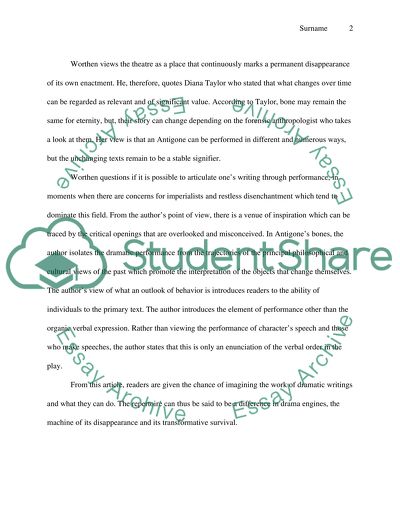Cite this document
(“Antigones Bones by W.B. Worthen Essay Example | Topics and Well Written Essays - 1500 words”, n.d.)
Retrieved from https://studentshare.org/literature/1394960-antigones-bones-by-wb-worthen
Retrieved from https://studentshare.org/literature/1394960-antigones-bones-by-wb-worthen
(Antigones Bones by W.B. Worthen Essay Example | Topics and Well Written Essays - 1500 Words)
https://studentshare.org/literature/1394960-antigones-bones-by-wb-worthen.
https://studentshare.org/literature/1394960-antigones-bones-by-wb-worthen.
“Antigones Bones by W.B. Worthen Essay Example | Topics and Well Written Essays - 1500 Words”, n.d. https://studentshare.org/literature/1394960-antigones-bones-by-wb-worthen.


